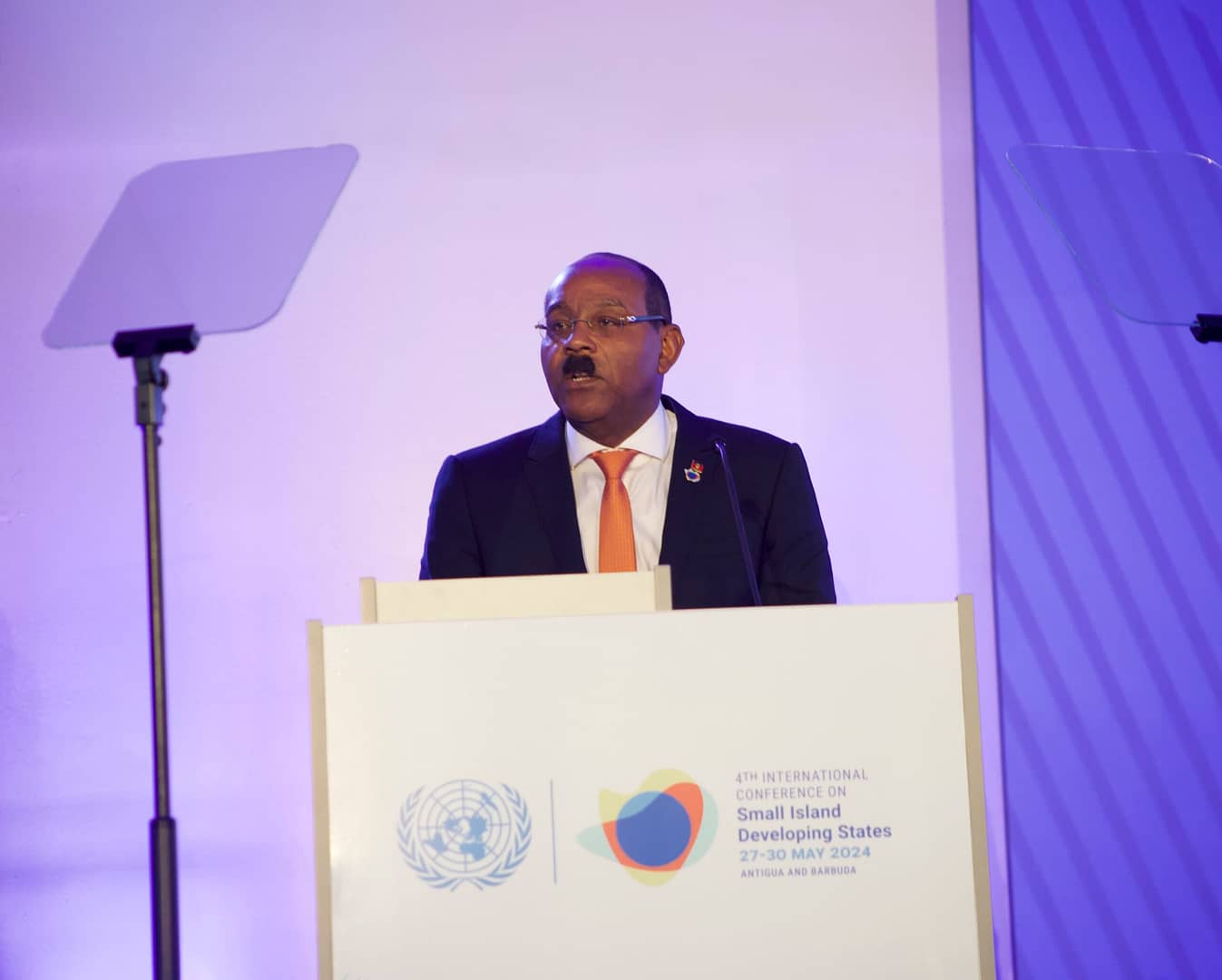
In a significant display of humanity and personal courage, Gaston Browne, the prime minister of Antigua and Barbuda, recently struck a significant blow, even as he offered a gift on behalf of the people – and their families – who suffer from mental illness and the stigma and discrimination that often accompany their condition.
The Caribbean Community (CARICOM) should grasp and make full use of this gift.
At a church in St John’s, Antigua and Barbuda’s capital, Mr Browne gave a largely unvarnished, yet tender, eulogy to his mother in which he spoke about her struggle with an eventually “irreversible psychosis”; her spells in and out of Antigua’s psychiatric hospital (then popularly known as Crazy House); and of how her illness exacerbated his and his siblings’ extreme childhood poverty, although their mother, during her period of wellness, worked diligently and with honesty to provide for them. And there were, too, as is often the case with mentally ill people in the absence of support systems, the exploitation, including sexual, she suffered.
“I share these experiences of my mother … not to dwell in the past, not to lay blame at anyone, and I do so without any bitterness whatsoever,” Mr Browne said at her memorial service. “That experience, horrible though it was, occurred in a different time in our society’s understanding of tolerance.
“In our present-day society, this experience should serve as a means to cultivate a more empathetic and supportive environment for mentally ill persons. It should also summon the men in our nation to consider the psychosocial impact of their abuse and irresponsible behaviours towards women and children.”
For most individuals and families, Mr Browne’s opening up would have been an extraordinary exposure of an extremely sensitive, and mostly painful, period of their lives. The scabs may have been easily irritated.
However, given Gaston Browne’s position as head of government, his public highlighting of mental health and the challenges faced by people who suffer from it carries greater weight. More importantly, he has opened an opportunity for a larger regional discussion of the problem of the state of mental health and wellness in the Caribbean that ought not to be wasted.
Indeed, the timing is propitious. October 10 is the World Health Organization’s (WHO) World Mental Health Day.

CARICOM states should use that platform to launch the Pasty Richards Initiative (PRI) – named for Mr Browne’s mother – as a regional effort to confront problems affecting mental health in the Caribbean and to erase the stigma and discrimination surrounding mental illness. The matter should be approached with a zeal similar to which the region is now attempting to attack non-communicable lifestyle diseases like obesity, hypertension and diabetes, and earlier efforts against HIV/AIDS.
The PRI should include in-depth reviews of the achievements by CARICOM members developing mental health action plans (2013-2030), in keeping with the WHO’s proposals, and how the region can combine its capacities to help those whose projects have become stuck.
Up-to-date data on the number of people in CARICOM states who live with mental health disorders, or the economic cost of mental illness in the region, are not readily available. Last October, the CARICOM Secretariat announced that it had commissioned, in conjunction with UNICEF, the United Nations children’s agency, a study on the state of mental health among young people in the community.
However, the accessible evidence suggests that, in many countries, and certainly in Jamaica, it is higher than the global average.
Based on WHO data, in 2019, before the onset of the COVID-19 pandemic, 970 million people, or around 13 per cent of the world’s population, experienced mental disorders of some kind. These issues were more prevalent among women (52.4 per cent) than men.
Of the people who lived with mental disorders, the highest proportion (31 per cent) was anxiety-related, followed by depressive conditions (29 per cent), while 4.1 per cent and 2.5 per cent, respectively, suffered from more serious bipolar conditions and schizophrenia.
Notably, the Americas, which encompasses the Caribbean and CARICOM states, was the WHO region with the highest level of mental health disorders – 15.6 per cent. It was followed by the Eastern Mediterranean with 14.7 per cent, and Europe, 14.2 per cent.
In Jamaica, the government health authorities say that one in five (20 per cent) of the population lives with or will develop a mental disorder sometime in their lives. However, other earlier research by the late psychiatrist Professor Frederick Hickling, a pioneer in community-based treatment for people with mental health issues, suggested that, in Jamaica’s high-stress environment, the figure could be as high as 40 per cent.
In 2010, it was estimated that mental illnesses, broadly defined, cost the global economy an estimated US$2.5 trillion with respect to the direct cost of care and in lost productivity. That figure was projected to rise to US$6 trillion. Yet, on average, countries dedicate less than two per cent of their healthcare budgets to mental health, while over 70 per cent of mental healthcare expenditure continues to be consumed by psychiatric care hospitals, like the one in Antigua where Ms Richards used to be periodically sent, and Bellevue in Kingston, whose character has been changed substantially in recent decades. In Jamaica’s case, Bellevue’s allocation of J$2.8 billion in the current fiscal year accounts for two per cent of the Government’s proposed current spending on healthcare. There, however, is no disaggregation of the overall spending on mental health, assuming that there are expenditures outside of Bellevue’s programmes.
The bottom line is, in high stress societies like our own, depressive and anxiety disorders, which are less costly to treat, are far more prevalent than other conditions. But stigma and discrimination often mean that most people with diagnosed, or diagnosable, mental health conditions go untreated. The result is the wasting of worthy human lives, ultimately with severe loss to societies and national economies.
CARICOM should commit itself to ending this waste.
Advertise with the mоѕt vіѕіtеd nеwѕ ѕіtе іn Antigua!
We offer fully customizable and flexible digital marketing packages.
Contact us at [email protected]
















Was indeed one of the finest moments for PM Browne as he openly spoke about the mental challenges his mother faced throughout her life. These are not things that most people would want to admit, let alone talk openly about. His eulogy at the home going of his mother was indeed a bacon of light and I am hoping that it would mark a new thrust on how we see and treat the mentally ill among us going forward.
Truly a man of vision! Congratulations on behalf of all decent, positive and grateful Antiguans and Barbudans.
@Faithful… Audrey’s post is a human to human expression with which we can all empathize. You jumped from that to politics. Don’t you people ever stop the kissing of butt?? What is the vision of a man who allows his country to he overrun with non nationals to the point that the country is close to , if not a failed state?? What is the vision of a man who is overseeing the destruction of all our country’s institutions?? What is the vision of a leader that has all of us looking Westward to St Kitts as an example of a small country that is well run? That should have been us man! And, it’s that same leader and his party that is pulling us to the brink of Polarisation and the destruction of our society. Soon we in this country will be kicked from pillar to post by the monied interests who are hell bent on destroying all our ordinary folks livelihoods; the latest being the Egg Farmers.
Hate to have to do this now but you guys just don’t stop!!
Comments are closed.